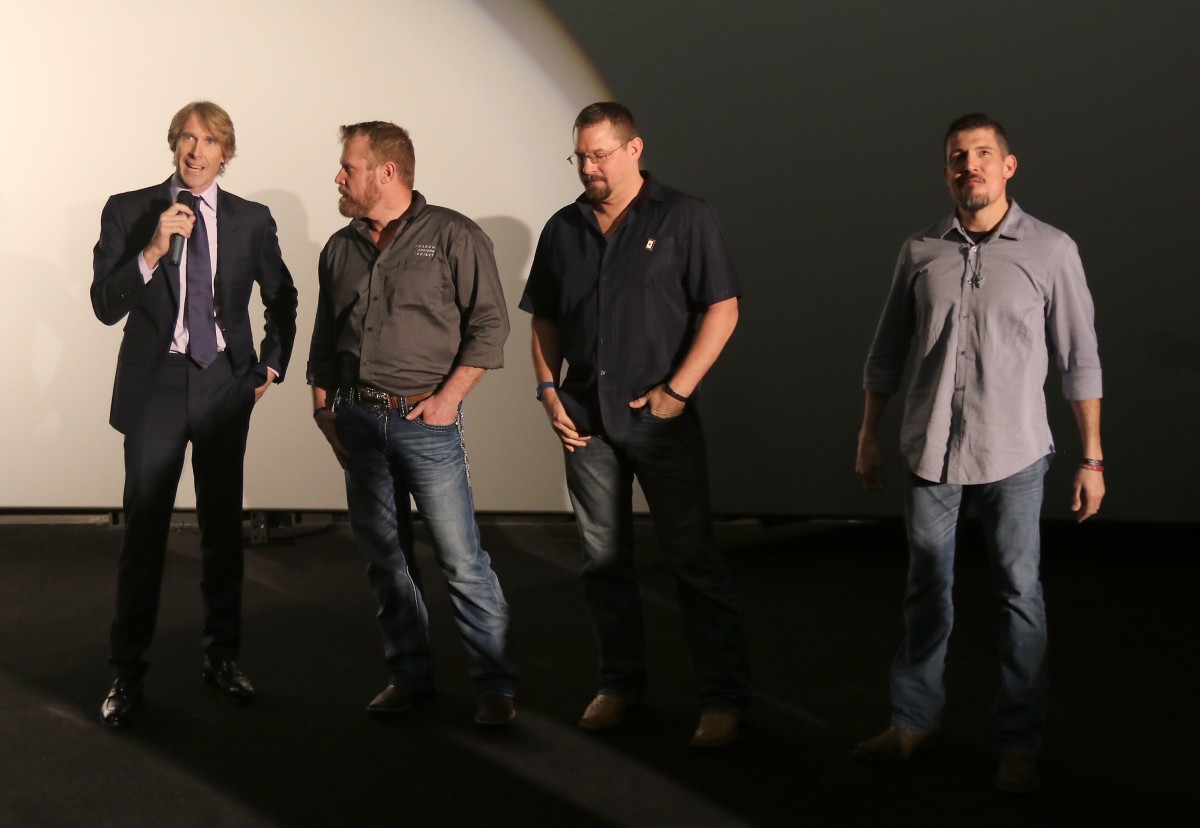13 Hours: Meet the Real Secret Soldiers of Benghazi

John Krasinski in ’13 Hours: The Secret Soldiers of Benghazi’ Photo by Paramount Pictures / 3 Arts Entertainment / Bay Films
13 Hours: The Secret Soldiers of Benghazi hopes to set politics aside in order to shine a light on what really happened during that fateful night in Libya.
While the events of September 11, 2012 have become extremely politicized in recent years, the film–directed by Michael Bay and starring Massachusetts native John Krasinski–aims to highlight the human toll of this tragedy.
The attack on a diplomatic compound in Benghazi by Islamic militants left four Americans dead, including U.S. Ambassador J. Christopher Stevens, U.S. Foreign Service Information Officer Sean Smith, as well as CIA operatives Glen Doherty and Tyrone Woods. Stevens was the first person killed while serving as a U.S. Ambassador since 1979.
More than 20 lives were saved, though, thanks to Kris “Tanto” Paronto, Mark “Oz” Geist, John “Tig” Tiegen, and the rest of the CIA annex security team who fought off the attackers for over 13 hours.
“A lot of people don’t know what happened during those 13 hours and it became so political because they were trying to either hammer somebody on the left or hammer somebody on the right,” Tiegen says. “What all the politicians did, they pretty much just smacked the four guys that died in the face. They’re taking their deaths and trying to benefit themselves.”
This frustration with the politicization of the Benghazi attack is what led Tiegen and the surviving security team members to want to tell their side of the story. They teamed up with Boston University journalism professor Mitchell Zuckoff to write the book 13 Hours, which was turned into a movie.
Adamant about making sure the events were portrayed accurately on screen, the men were impressed with Bay’s handling of the story and jokingly said they’d waterboard the director in his Hollywood pool if he messed anything up. Overall, they felt the project was in the right hands.
“We were very much involved with the process,” Paronto says. “So those concerns, at least on my end, went away quite rapidly.”

From left: Director Michael Bay, Mark ‘Oz’ Geist, John ‘Tig’ Tiegen, and Kris ‘Tanto’ Paronto Photo by John Parra / Getty Images for Paramount Pictures
The men also wanted to clarify some misconceptions about the attack with the film, such as the details around Ambassador Stevens, who Tiegen says, wasn’t tortured before his death despite some politicians’ claims to the contrary.
However, the security team members wanted to showcase, above all, the effect that this event had on the people involved.
Geist, in particular, was forced to overcome a significant amount of adversity, from sustaining serious injuries to witnessing the death of his friend Woods.
“It was my first time getting blown up,” Geist says. “During that time, you’re not feeling that. There were three mortars that hit on top of the roof, the first one took my arm off almost. It killed Tyrone. My only concern was trying to stay back into the fight.”
He adds, “This is the closest I ever came to being killed.”
The experience, of course, left its mental and physical scars on the men. Geist says he’s lost his patience for stupid stuff, a sentiment that his fellow first responders definitely share when it comes to the way some leaders acted in the aftermath of Benghazi.
They hope that any politicians who see the film will get a better understanding of how their actions have an affect on the people they send abroad to fight.
“The decisions they make here are going to affect what happens out there,” Paranto says. “If they don’t listen to the guys out in the field and what they need and what they want, you got to learn to depend on the guys seeing it and give them what they need. Waiting can cost lives and what’s a life worth?”


